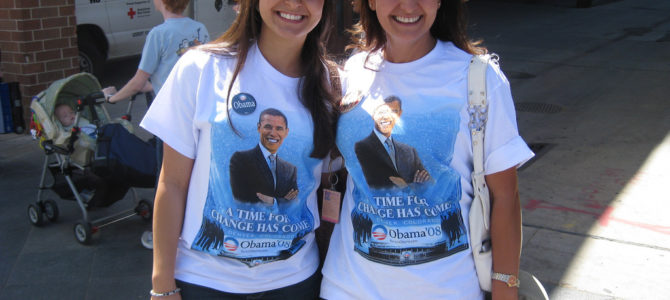
Over at The Root, Michael Harriot takes a stab at “5 Types of Becky.” A capable rhetorician, he begins with a definition: “Becky: (noun); a white woman who uses her privilege as a weapon, a ladder or an excuse. Ex: ‘A random Becky hit me up on Twitter to explain why not all white women are racist.’”
Having familiarized sublithic persons with “Becky” as shorthand for “fundamental wench,” Harriot goes on,
Not all white women are Beckys, but all Beckys are white women. However, just as people note that ‘black people are not a monolith,’ it is unfair to paint the entire genus of Beckys with the same broad brush. To combat this stereotype, we gathered some of the world’s leading board-certified Beckyologists and asked them to classify the disparate classes of Beckys so that we may have a better understanding when we discuss this subject.
The Beckyologists do not specify which white women are not Beckys. Their work is to identify two comparatively good Beckys (Becca and Reba), and three not good (Rebecca, Beckeisha, and Beckzilla). As a literal and sociological Becky, I must recuse myself from critical judgment of these conclusions. But my situation of Beckyism has given me natural, lifelong occasion to study the praenomen. The manifestations I have encountered are not the same as Harriot’s. For the benefit of Beckyological science, here are some additional angles on Becky.
Rebecca
This name/spelling combo means you have Basic Protestant parents who wanted a pretty, biblical name for their daughter. They probably capitalize the word “Biblical” when they write it. Alternatively, you may have been baptized Roman Catholic with older sisters named Mary, Therese, Anna, Margaret, Catherine, Agnes, Barbara, Bernadette, Fatima, Guadalupe, Marie, and Sarah. If people try to “Becky” you, you say, “Oh, people usually call me Rebecca! It’s fine, though!”
Rebekah
This name/spelling combo means you have Basic Protestant parents who preferred more contemporary translations of the Bible. King James transliterated the name as “Rebekah” in Genesis, but “Rebecca” in Romans, reflecting Hebrew and Greek, respectively.
In more recent translations (NIV, NASB, ESV, etc.), the Hebrew root RVQH prevails, even over the Greek Rebekka. The trouble comes from the fact that Hebrew has two voiceless velar stops (transliterated Q and K) just like English (K and C). The Greeks dropped the H on the end because that’s totally not how H worked for them (they’d rather have it with an R like in rhubarb or rhododendron, or tacked onto the front of a vowel, using punctuation rather than a letter). You see how complicated these things get. If people try to “Becky” you, you say, “Oh, people usually call me Rebekah! It’s fine, though!”
Variants upon Becky (Beckie, Becki, Bekki, etc.)
Much of Harriot’s article is rather untoward, so some of his arguments on Becky may be opaque to some readers. But the nickname Becky and all variant spellings are accidents of socio-history, better examined here.
The point is that if your parents named you Rebecca/kah, there is a good chance they were Boomers, and at various places in the middle of our beloved country, such people worry about sounding pretentious. So you got called Becky, or (if they were creative) Beckie/i/ki/whatever. You have stuck with Becky out of inertia, or agreeing that Rebecca sounds pretentious, or because people named “Becky” are perfectly cromulent. If someone calls you “Rebecca,” you say, “Oh, people usually call me Becky! It’s fine, though!”
Becca
Your given name is Rebecca, and your parents perceived that Becky was long-term social suicide. There would be more Beccas in the world if more parents had thought Bekah was an okay thing to do. But the spelling seemed weird to them, and they’d already gone to the trouble of committing to Rebekah rather than Rebecca, so they conceded to Becky for everyday. I agree with Harriot here, that Beccas are the most innocent of all Beckys. If someone goes by Becca, I assume she grew up in an AWANA family. Holy innocence, Batman!
Other Beckys
Bekeishas and Beckzillas not real; Harriot made them up for funniness. Reba exists only in country music and Toni Morrison, suggesting a phenomenon that has been addressed by more qualified scholars. I have run into throngs of other Beckys/Rebeccas in my life, due to my practicing Protestant social sphere, but never a Reba. This outs me as a solid Becky. (It’s fine, though.)
Rivka(h)
Harriot surprisingly disregards a small but significant subset of the Becky population by omitting Rivkas. They’re out there, not so hard to find, and kind of a big deal. The name “Rebecca” itself means “bound for fattening,” from the Hebrew root RVQ. You can see it in use in 1 Samuel 28:24; the RVQ root is how the calf gets described.
The biblical occurrence as a given name is how it comes into common usage among Jews and Protestants. How RVQH became desirable as a baby girl name in the ancient Near East is a mystery for the ages. The Hebrew Bible also introduces readers to the orthographically and aurally similar name Rizpah, which can’t compete with Rivka and her derivatives. Context is everything, at least for Protestants (see also Tamar).
How Beckys Get Beckied
I began going by Rebekah instead of Becky on the first day of ninth grade. One had to speak up at the first roll call in each class to claim a nickname. I didn’t have the speaking up in me, so it was Rebekah from there on out.
Nevertheless, I occasionally get Beckied by enterprising strangers (which is fine). All Rebeccas should accept this, and misspellings, as a fact of their lives. Rebecca is among the Anglosphere’s more socially complicated names, and I salute Harriot for recognizing that. Memes or stigmas notwithstanding, it is fitting to be thankful for the name one receives from one’s parents, and I am.









